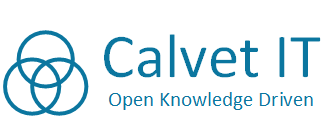FAQ
Why is employee leasing prohibited?
A Norwegian law restricts leasing employee to another company without approval, but companies with fewer than two employees can’t request it.
This blocks a revenue source for small businesses, hindering their growth and preventing them from hiring employees to resolve this issue.
Passed on January 1, 2024, this law has been challenged since then. Let’s hope politicians realize its numerous negative impacts on society and remove it as soon as possible.
Why an AS company and not a non-profit organization?
The company wasn’t created with Open Knowledge in mind; it naturally developed while studying IT software engineering, working with Open Source products, and seeking a way to positively impact the world.
Even though we are an AS company, we align our values more closely with a non-profit organization, and we may consider this in the future.
What does “Sharing of discovered knowledge” mean concretely?
This concept stems from past frustration at a customer site where I spent considerable time deciphering vendor documentation. Unfortunately, the customer prohibited any sharing.
The information wasn’t strategic for the customer, and the vendor documentation was available to anyone. However, this means many IT professionals will likely face the same challenges and perform the same analysis.
The goal is to prevent such inefficiency at a societal level.
In general, knowledge gained while working with off-the-shelf software or hardware solutions doesn’t provide a competitive edge for the customer, as a competitor can purchase the same solution. Therefore, such knowledge is a good candidate for sharing.
However, if a cloud provider builds its own Kubernetes platform from scratch and invests significant time and resources to automate it, it becomes a critical competitive asset and must remain confidential.
We will clarify expectations for each engagement to ensure we share only appropriate information.
Why English for a Norwegian company?
English is already the de facto standard language in the IT industry. Leveraging it fosters a unified language, which in turn supports the principles of Open Knowledge.
Additionally, it eliminates the time wasted on translating English terms into local languages, which I experienced in past meetings.
Therefore, all documentation produced by Calvet IT is in English to support Open Knowledge on a global scale. However, we can conduct oral interactions in Norwegian.
